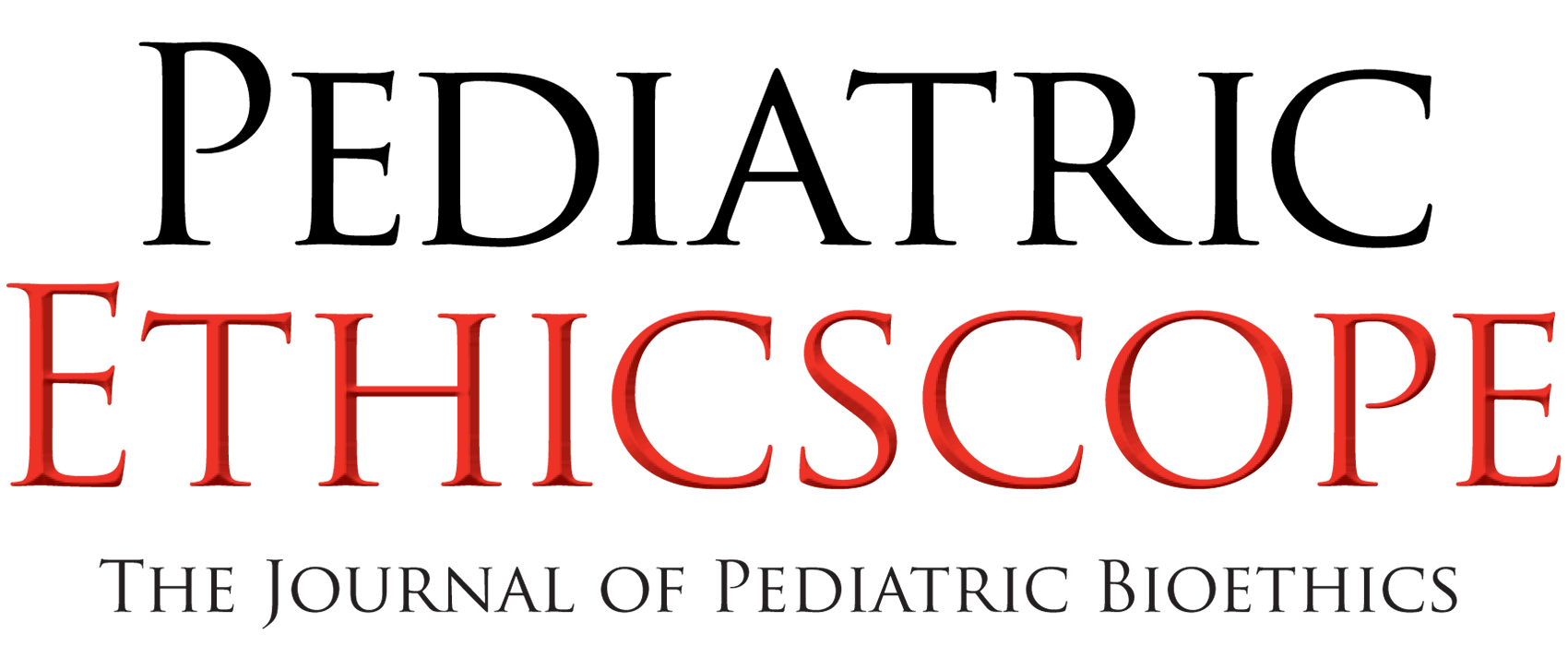Introducing Pediatric Ethicscope
As we launch online as a Platinum OA (open-access) journal dedicated to pediatric ethics and bioethics, Pediatric Ethicscope is now closing its 30th volume; it has, and will continue, to present the work of multidisciplinary contributors sharing diverse and nuanced perspectives on issues of import to pediatric medical ethics. Our aim is to disseminate the best and latest thinking on pediatric ethics. To see how we got here, and learn more about us, visit the Who We Are section.
While we are not a one subject per issue publication, this issue of Pediatric Ethicscope takes up the issue of drug shortages, which continue to plague patients, providers, and hospitals on an increasing basis. Due to its complexity, the subject is approached from several perspectives. The issue as it relates to pediatric oncology is taken up by Yoram Unguru MD, MS, MA in Shortages of Drugs, Surpluses of Ethical Challenges. To get a practical view of the problem, Jeffery Dome MD, PhD, Division Chief of Hematology/ Oncology at Children’s National Health System discusses his experience with drug shortages, and how one large pediatric institution is grappling with the problem in The Interview. The oncology pharmacists on the front line of procuring these medications discuss their experiences in Shortages: The New Normal in Pharmacy, explaining in-depth the processes and pitfalls to ensuring providers have the therapies they need when they are needed. Changing gears, this past year’s winner of the Leikin Lecture Essay Contest for New Authors takes up the subject of Transitional Care for Adolescents. Rounding out the segments on drug shortages, Stowe Teti, our Executive Editor, provides a historical backdrop to the present drug shortage crisis, arguing the issue may best be analyzed in axiological, rather than ethical terms in What Lies Beneath.
Since Pediatric Ethicscope doesn’t do entire issues dedicated to a single subject, several other articles are interspersed with the above. Yoram Unguru leads the Dialogue with the Ethicist, Joseph Bokum Lee MD, MAT chronicles his journey from teacher to physician on the South Side of Chicago in From Classroom to Clinic, and our Editorial Group reports on the 2016 Harvard Clinical Bioethics Course in our recurring feature, Education in Ethics.
Finally, taking the first section last, we would like to introduce the Proem. The Proem is a piece of poetry or other literature intended to engender a mindset conducive to ethical reflection. In this issue it is accompanied by a picture, but in the future it may be a video clip, piece of music, or other artwork. Since bioethics is ultimately about grappling with the some of the most difficult elements of the human condition, it seems fitting we, as good listeners, be open to those outside of ethics who have thought deeply about this subject. While Immanuel Kant’s Critique of Pure Reason drew a line between what we humans can know, and what is simply out of knowledge’s reach, and Ludwig Wittegnstein developed on that idea with his proclamation, “I am the limit of my world,” Frost’s verse quietly challenges. In For Once, Then Something he asks us to consider that boundary condition; what might such a limit be like to experience, and is such a thing discrete as philosophers seem to suggest, or a sometime tribulation ailing our pursuits–and perhaps more often in bioethics than other endeavors.
This is our project; one we hope you will become a part of, by subscribing, authoring a paper, or becoming a reviewer. In being both open access and academically rigorous, we hope to focus pediatric bioethics and clinical ethics in a way that gives greater voice to the work being done in the field, and disseminating that knowledge and those practices more broadly. Thank you for your interest.

This work is licensed under a Creative Commons Attribution-NonCommercial-ShareAlike 4.0 International License.
